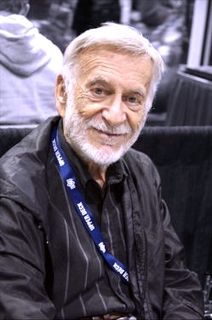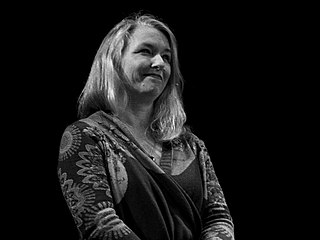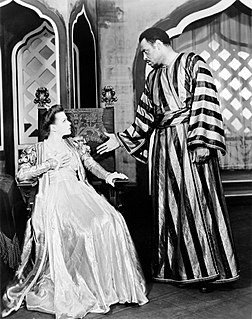A Quote by Dean Koontz
It may sound strange, but when you're a kid and you're in that environment, for some reason for a long time you think, when the doors are closed in other houses, this is what it's like everywhere. And then at some point you begin to realize that isn't true, and books were really the educational system that showed me that there were many better and different ways to live a life.
Related Quotes
There were doors that looked like large keyholes, others that resembled the entrances to caves, there were golden doors, some were padded and some were studded with nails, some were paper-thin and others as thick as the doors of treasure houses; there was one that looked like a giant's mouth and another that had to be opened like a drawbridge, one that suggested a big ear and one that was made of gingerbread, one that was shaped like an oven door, and one that had to be unbuttoned.
For a long time it had seemed to me that life was about to begin -- real life. But there was always some obstacle in the way, something to be gotten through first, some unfinished business, time still to be served, a debt to be paid. Then life would begin. At last it dawned on me that these obstacles were my life.
I have seen several deaths, too many deaths in my life, and they were all different. Each one was different. It didn't seem to be necessarily connected with the life of the person. Some people that were not particularly developed or outstanding or spiritual died very easily. Some other people were on a very high level and had a difficult time in dying.
I think in some ways, I would go back home, and I didn't really quite fit in and couldn't - didn't have a person to bounce those experiences off of. So I felt a little bit trapped within me, and it made me feel lonely because I really couldn't - the things that were exciting to me, I couldn't really share those with another kid and that other kid understand that.
And in some ways, to me, that's one of the inspiring and powerful things about the Great Migration itself. There was no leader, there was no one person who set the date who said, 'On this date, people will leave the South.' They left on their own accord for as many reasons as there are people who left. They made a choice that they were not going to live under the system into which they were born anymore and in some ways, it was the first step that the nation's servant class ever took without asking.
To some, a cap-and-trade system might sound like a neat approach where the market sorts everything out. But in fact, in some ways it is worse than a tax. With a tax, the costs are obvious. With a cap-and-trade system, the costs are hidden and shifted around. For that reason, many politicians tend to like it. But that is dangerous.
I think, one thing that I've really come to appreciate about my parents as I've got older is you know, how wise they really were. As a kid when I was growing up, as any kid, you think you know every thing and I was no different to that. I had different opinions on a lot of different things then them but the way they raised me, in hindsight, they were right.
I had written three books [Games of Throne], at that point, and each one of them was better than the other. At a certain point, as the books were doing well, I started getting interest from Hollywood, from various producers and studios who were initially interested in doing a feature film. I met with some of those people and I had phone conversations with some of those people, but I didn't see it being done as a feature film.
In many countries in the Middle East - and this is changing in the wake of the Arab Spring - but for a long time, censorship of books and film was a very big deal. There were books you couldn't buy; things with political content would be censored, but there were some genres of books and film that the censors just didn't understand.
I remember being a kid, I was a little kid when my dad took me to 'Munchausen.' I guess he took my whole family, but I kind of didn't want to go for some reason. Then we got there, and I was so mesmerized by the movie, and I was really taken by the young Sarah Polley. I didn't realize until many, many years later that it was Sarah Polley.
Joy is what makes life worth living, but for many joy seems hard to find. They complain that their lives are sorrowful and depressing. What then brings the joy we so much desire? Are some people just lucky, while others have run out of luck? Strange as it may sound, we can choose joy. Two people can be part of the same event, but one may choose to live it quite differently than the other. One may choose to trust that what happened, painful as it may be, holds a promise. The other may choose despair and be destroyed by it. What makes us human is precisely this freedom of choice.
When I did some research on child marriage, I realized there were no photographs that showed what it looked like. But the more you dig into something complex, the more you realize how much there is to learn. That's why I've taken so many years to unravel the complexities of the issue and how it continues to be similar and different in different countries and communities.
For some strange reason, we believe that anyone who lived before we were born was in some peculiar way a different kind of human being from any we have come in contact with in our own lifetime. This concept must be changed; we must realize in our bones that almost everything in time and history has changed except the human being.


































